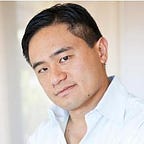What Real Housewives of New Jersey can teach social media entrepreneurs
The Sunday New York Times has an excellent profile of Andy Cohen, the man behind the “Real Housewives” franchise. While the profile diminishes him, the depth of his understanding of consumer psychology shines through.
Today, consumer technology is popular culture, and the scarce resource in social media startups is not technological prowess, but the insight into consumer behavior. Andy Cohen delivers this insight in droves. He started out his career in TV, as head of the Barry Diller cable network Trio*,then as head of production at Bravo, so rather than new media, he has turned his insights into a range of successful old media franchises. He now has a successful production company, a channel on Sirius TV and a late night talk show. If he had been 25 years younger he might have started the next great social network. But some of his pearls of wisdom apply equally well to social media.
Here are some insightful quotes from the article:
On why people are willing and eager to become stars of reality TV (or social media):
These women, who were once housewives, real housewives, are now businesswomen. Teresa Giudice is a four-time New York Times best-selling author. Melissa Gorga has a successful clothing store. Jacqueline Laurita now has a platform to talk about her son’s autism and for her husband to sell a mini-popcorn brand called the Little Kernel. “I’m in a business relationship with these women,” he said. “They know what they’re doing.”
Of course, online, it is more than a business decision, it is also a quest for fame, and I think this is also the case for reality TV. But there is no denying that both Reality TV personalities and online personalities can monetize that fame through multiple channels
On the appeal of reality TV (and social media):
“First of all, the ‘Housewives’ are entertainment. Second of all, in the ‘Housewives universe,’ you get punished for behaving badly. There are consequences to it.”
and
If there’s one thing about Cohen, it’s that his respect for the democratic rhythms of popular culture and popularity in general is total. He wants to watch the rise and fall of things, even himself, without trying to manipulate the process. He wants it all to play out. The people will decide, and watching what the people decide and how they decide is far more important than the decision itself.
and
Lauren Zalaznick, at the time president of Bravo, recalls someone coming in with hundreds of hours of documentary tape from a gated community in Orange County, Calif., which the producers needed to work. In that footage, Cohen saw something. “I don’t want to pretend like it was like lightning in a bottle at the beginning,” he said. “I was like: ‘This is a soap opera. This is a soap opera.’ ” It was also something else. “This is real life.”’
Part of the appeal of both social media and Reality TV is that it always the audience the delicious pleasure of judging other people.
On why Reality TV (and Social Media) stars DON’T censor themselves
Cohen learned that day that people stand behind their behavior, and that trying to protect them from themselves is a fundamental act of disrespect: “These women, but maybe all women. I mean maybe all men, too; I think all people want to be heard and understood.”
He learned too that people don’t need you to fight their battles, that they are entitled to them, even if you think they’re ridiculous. He learned that an audience will respond to however eccentric or stubborn or mean or dumb or kind a person is if that person is being authentic. “The things that you think might embarrass them they actually feel like, Well, I was standing up for myself,” he said.
Many people on social media try to live up to other peoples standards of behavior. The stars of Reality TV and Social Media want to justify their behavior by their own standards.
And perhaps most importantly, on how to see the world
Andy Cohen didn’t invent our society. To think that is to have missed the entire point of him. He simply predicted it. He saw it coming before we did, and he taped it. He has a lack of judgment about the way the world works, and therefore doesn’t have the willful ignorance that the rest of us do — yes, we’d seen Tamra call Alexis “Jesus Jugs,” and we insisted it was a tacky anomaly. But it wasn’t. It was the way the world works now. Andy Cohen isn’t how our culture got this way. He is simply a walking seismograph of it.
So many great points, but this last one is perhaps the most important one. Observation without judgement is very difficult to do, but if you can pull it off, you don’t need to be able to predict the future, you can just watch the present
* I worked for USA Networks/Barry Diller at the same time that Andy Cohen did, as VP of Strategic Planning, but did not know him and still don’t
☞ If you like this post, click “♥︎” so that others can find it.
☞ And, you can always follow me on Twitter.
